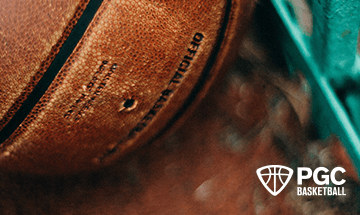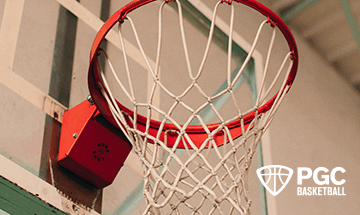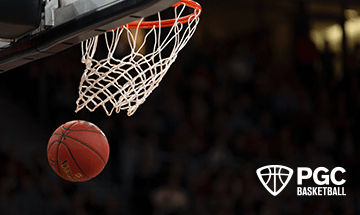I Hope You Fail
– Think The Game Thursday –
What is your response to failure? Join PGC Director Matt McLeod as he breaks down how true champions handle failure and why failure is actually the key to success.
Think Deeper
Mistakes Require Action
“Get him!” may be all it takes to mobilize a player who otherwise would have stood there drooping…
In response to an error, Hustle-CAT is a good term to remember and a good thing to do.
In all the continuous team sports like basketball, soccer, volleyball, and hockey—and sometimes in baseball and football as well—a player will make a mistake and have the opportunity immediately either to compound the mistake or to correct it. If your error immobilizes you while you pause to demonstrate your anguish or anger, you compound your error. A muffed “kill” in volleyball isn’t a point lost until you stand there frustrated and fail to make the best reaction possible to set up your defense for the opponent’s attempt.
In football, although there is usually dead time between plays, in many instances—particularly on interceptions or fumbles—immediate response to the new situation would save your team thirty or forty yards, or a touchdown, in spite of the negative event.
Admittedly, a team driving for a tying touchdown late in the game will be upset if a pass is intercepted on the one yard line. If that opponent is tackled on the one, his team will be in a very precarious situation and may soon be punting the ball back to you. However, if that same player is permitted to run the ball back for a touchdown, the game is lost.
It is crucial for any player to get in the habit of immediate positive response to new situations. Sure, sometimes a late interception will lose the game regardless of where the opponent is tackled. But if you let yourself start deciding when to put out effort and when not to, you will make dozens of wrong decisions and lose lots of valuable time in the process of deciding.
The success you enjoy during your athletic career will be magnified if you simply make yourself a promise to respond immediately, then decide later if the effort was worth it or not.
In other words, when an error occurs, hustle to make up for it. In mathematical terms, it looks like this: Error = hustle.
Then it would make sense to add another point to the hustle side of the equation. Hustle C-A-T. Call A Teammate.
When a mistake is made one of the best possible responses is not merely to mobilize yourself, but to call a teammate into action. Remember, your teammates are as likely to be feeling disappointment, dejection, and immobilization as you are. They too are hoping to see the touchdown pass when the ball gets intercepted, and they may not have cultivated the habit of responding immediately to the new situation.
By calling a teammate into action the moment you make or see an error, you animate that teammate or at least have a much better chance of animating him than if you remain silent. In most sports athletes are readily influenced by the commands and urgings barked out by coaches and teammates. “Get him!” may be all it takes to mobilize a player who otherwise would have stood there drooping.
One moment a player not accustomed to having the ball has made an apparently game-saving interception and the next moment he is blindsided by a furious tackler. Will he fumble the ball back to you? There are no guarantees. But he may fumble it back—the odds may even be for that happening—if (the big, perennial if) he is hit immediately and hard. And there is very little chance of a fumble if he isn’t.
Another advantage of calling a teammate into action is that, if nothing else, it takes the attention off you and your mistake. Why stand there in disgust letting the world know you are guilty? At the end of the game, the only way the fans may remember that you messed up is via your gesture of disgust. Forget the gestures, blend immediately into the action and call your teammates to join you.
In basketball, when your shot is off-target, call your biggest rebounder into the play by telling him to get the ball. Yell out his name. “Humongo! Rebound!” By the time the ball bounces off the rim, no one—including your coach—will even remember that you shot it. Everyone will be too busy watching big Humongo’s rebounding reaction. Is he trying to get himself into position to grab the ball, or is he just standing there hoping the shot goes in? If Humongo just stands there you can be sure that at halftime Humongo will take the brunt of the coach’s anger. Sure, everyone misses shots, even the pros. But that’s no reason giant Humongo should stand there watching the game. What does he want to be, a fan?
No doubt you get the message. Calling a teammate into action after you make a mistake is not only a good habit that promotes better results on the field, it may even spare you in the locker room.
—Excerpted from the book, “Think Like a Champion”
Related Articles
#1 Thing College Basketball Coaches Hate in a Recruit
A short while back on a PGC mentorship Zoom call, a player asked Yale Women’s Assistant Coach, Amber Raisner, “what’s the #1 thing you look for when deciding who NOT to recruit for your team?” Click to get the answer
Two Youth Basketball Organizations from the Jr. Nba’s Flagship Network Partner up to ‘teach the Game the Way It’s Meant to Be Played’
For the first time in history, two best-in class youth basketball organizations and members of the Jr. NBA Flagship Network – PGC Basketball and Pro Skills Basketball – have entered into an official partnership.
Upset About Something? (Maybe You Ain’t Taught It Well Enough)
One of the most important concepts for a coach to understand is The Responsibility Principle. If things aren’t going well, you have just one person to blame: yourself.
About PGC
PGC Basketball provides intense, no-nonsense basketball training for players and coaches. Our basketball camps are designed to teach players of all positions to play smart basketball, be coaches on the court, and be leaders in practices, games and in everyday life.
We combine our unique PGC culture with a variety of teaching methods and learning environments to maximize the learning potential of those that attend our sessions. In addition to spending 6-7 hours on the court each day, lessons will be reinforced through classroom sessions and video analysis.
Our goal at PGC is to empower you with the tools to fulfill your basketball dreams, while also assisting you in experiencing the joy of the journey.
To learn more about PGC Basketball, including additional basketball training tips and videos, visit our YouTube Channel or find us on Facebook, Instagram, and Twitter.













Share This Post